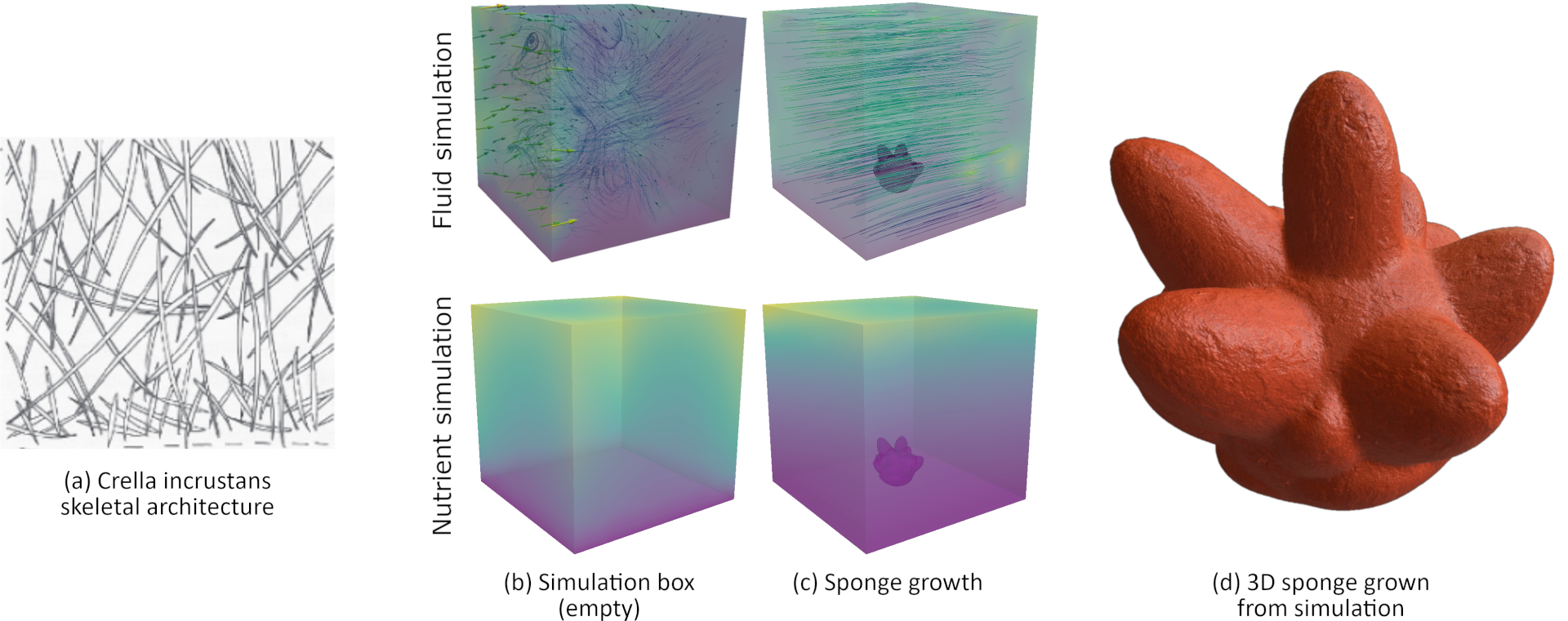Simulating the Geometric Growth of the Marine Sponge Crella Incrustans
Josh O'Hagan, Andrew Chalmers, Taehyun James Rhee
Room: 104
2023-10-25T05:12:00ZGMT-0600Change your timezone on the schedule page
2023-10-25T05:12:00Z

Fast forward
Full Video
Keywords
Computing methodologies—Computer graphics—Shape modeling; Computing methodologies—Modeling and simulation; Human-centered computing—Visualization—Scientific visualization
Abstract
Simulating marine sponge growth helps marine biologists analyze, measure, and predict the effects that the marine environment has on marine sponges, and vice versa. This paper describes a way to simulate and grow geometric models of the marine sponge Crella incrustans while considering environmental factors including fluid flow and nutrients. The simulation improves upon prior work by changing the skeletal architecture of the sponge in the growth model to better suit the structure of Crella incrustans. The change in skeletal architecture and other simulation parameters are then evaluated qualitatively against photos of a real-life Crella incrustans sponge. The results support the hypothesis that changing the skeletal architecture from radiate accretive to Halichondrid produces a sponge model which is closer in resemblance to Crella incrustans than the prior work.